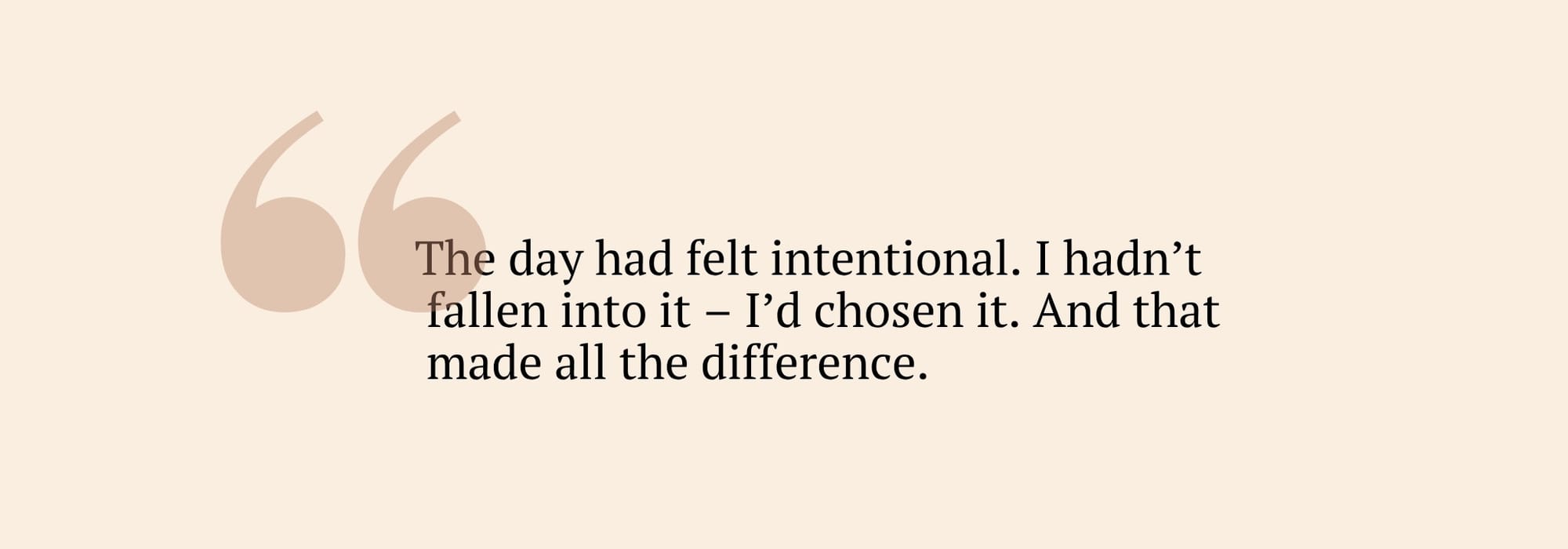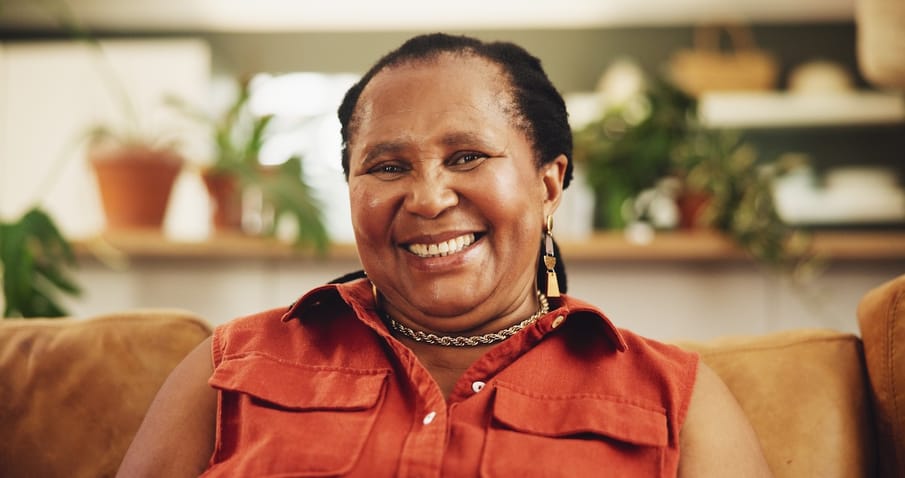Researchers identified the exact time breakdown for happiness, but how does it play out in reality? Lucy Pearson is putting the science-backed formula for the ‘perfect day’ to the test…
What does a truly fulfilling day look like? Not the Instagram-curated version involving infinity pools and perfectly arranged flatlays, but something grounded in reality – something achievable. A recent study from the University of British Columbia offers a surprising answer.
The findings draw on data from nearly 15,500 Americans, with researchers using machine learning to analyse how time spent on more than 100 daily activities correlated with participants’ self-rated happiness. The result: clear patterns and tipping points that help distinguish an average day from a pretty good one.
According to their findings, the happiest people spend their time in a very particular way: six hours with close family, two hours with friends, one and a half hours in general social interaction, two hours exercising, and just one hour each for screen time and eating or drinking. It’s a (somewhat scientific) blueprint made up of connection, movement, and meaning – with very little scrolling, binge-watching, or mindless snacking.
Sceptical, but intrigued, I decided to test the theory myself. I picked a Saturday – free of work obligations and chores – and set out to see if a scientifically engineered perfect day could boost my mood.
I’m naturally an early riser, and often find myself doomscrolling the moment I’ve set the kettle to boil. But, knowing I only had one hour of screen time for the whole day, I left my phone in the kitchen drawer, and took my tea into my sunroom. I spent the next two hours lost in a novel, without checking messages or jumping between tabs. It was a deeper kind of reading, and I flew through almost twice as many pages as I normally would. As mentioned in research published in the Journal of the Association for Consumer Research, the mere presence of a smartphone – even when it’s not in use – can significantly impair our ability to concentrate and engage in complex cognitive tasks, such as reading.
Later that morning, to ensure I was hitting my two hours of exercise, I swapped my usual Pilates class for a walk along the coast with a friend. While the findings don’t stipulate whether the exercise should be taken indoors or outside, there’s something about being outdoors that gives a deeper dopamine hit than a sweaty studio under synthetic lights. I felt more present, more connected, and genuinely recharged.

Next on the agenda, I picked up a coffee and croissant for my boyfriend on the way home, and we spent the next couple of hours just being together – chatting, pottering, hanging out. Nothing dramatic, but the kind of domestic calm that often gets squeezed out by to-do lists and deadlines. Then, with the six hours of family time in mind, we set off for the Southern Highlands to spend the rest of the day at my aunt’s.
Family time is one of those things that’s often assumed to happen naturally, but rarely does, unless you make space for it. My boyfriend hadn’t met my aunt or cousin before, and I hadn’t seen them in a while, so it felt like a special way to spend a Saturday. We caught up over drinks and pasta, and my phone stayed zipped in my bag. We grabbed lunch on the go, so while I didn’t note down exactly how long I spent eating, I reckon I came pretty close to the hour mark. Although it didn’t feel limiting, I suppose one hour a day for meals somewhat conflicts with the idea of mindful eating, and truly savouring your food. But still, no one was half-engaged or checking sports scores. We were just there, with each other. It’s rare for me to spend a solid six hours with family, but since it had been nearly a year since I last saw my aunt and cousin, the time flew by. Of course, this kind of extended time together might not be for everyone, but with chosen family or close friends, it can feel effortless and deeply nourishing.
When you take phones and distractions out of the equation, something lovely happens: you listen more closely, and conversations go deeper than they might otherwise. It made me think of Sunday lunches from childhood, when screens weren’t competing for our attention, and meals lasted for hours because we enjoyed being around the table together. That said, the formula’s one-hour eating window feels at odds with these slower, more social meals. While it may reflect modern time pressures, I’m not convinced it leaves enough room for the kind of connection that makes shared meals meaningful.
What surprised me most was how often I instinctively reached for my phone throughout the day. The act of resisting that pull made me feel oddly untethered at first, then, increasingly serene. Without the mental clutter of emails, news alerts, and social media pings, there was more space in my brain – and in the day itself. Time felt expansive, rather than crammed. I felt like I was inhabiting the day, rather than racing through it. This makes me wonder whether the phone-free element alone is the real linchpin of the formula. If so much of our daily distraction and mental noise comes from constant digital connection, perhaps the other prescribed practices serve mostly to reinforce this central habit, rather than being essential on their own.

At one point, I caught myself thinking: this is it. Not a perfect day, perhaps, but a deeply good one. A day that felt rooted in presence, rather than performance. There was nothing fancy about it – just people I love, fresh air, movement, and a conscious effort to stay off digital devices.
So did the formula work? Strangely, yes. Not because I’d ticked off boxes, but because the day had felt intentional. I hadn’t fallen into it – I’d chosen it. And that made all the difference.
That said, it’s not the kind of schedule most of us can replicate on a random Tuesday. Life is busy. Work, childcare, commuting, and a neverending list of errands tend to chip away at our free time. The 14-hour ‘perfect day’ is a beautiful concept, but it’s also a luxury.
Still, ever since, I’ve been reflecting on how I spend my time and seen changes in my mental clarity and overall happiness. You don’t need six uninterrupted hours with your family to feel connected, but making the effort to really be present, even for 20 minutes, can spark a shift.
I won’t pretend I’ve kept to the one-hour screentime limit since, but I am more aware of when I’m reaching for my phone, and more likely to resist.
The truth is, happiness isn’t something we stumble into – it’s something we can design, at least in part. Maybe the perfect day isn’t a formula we follow exactly, but a nudge. A gentle reminder to prioritise the things that make us feel human: connection, movement, laughter, love. Even in a busy life, there’s room for more of those.


Comments